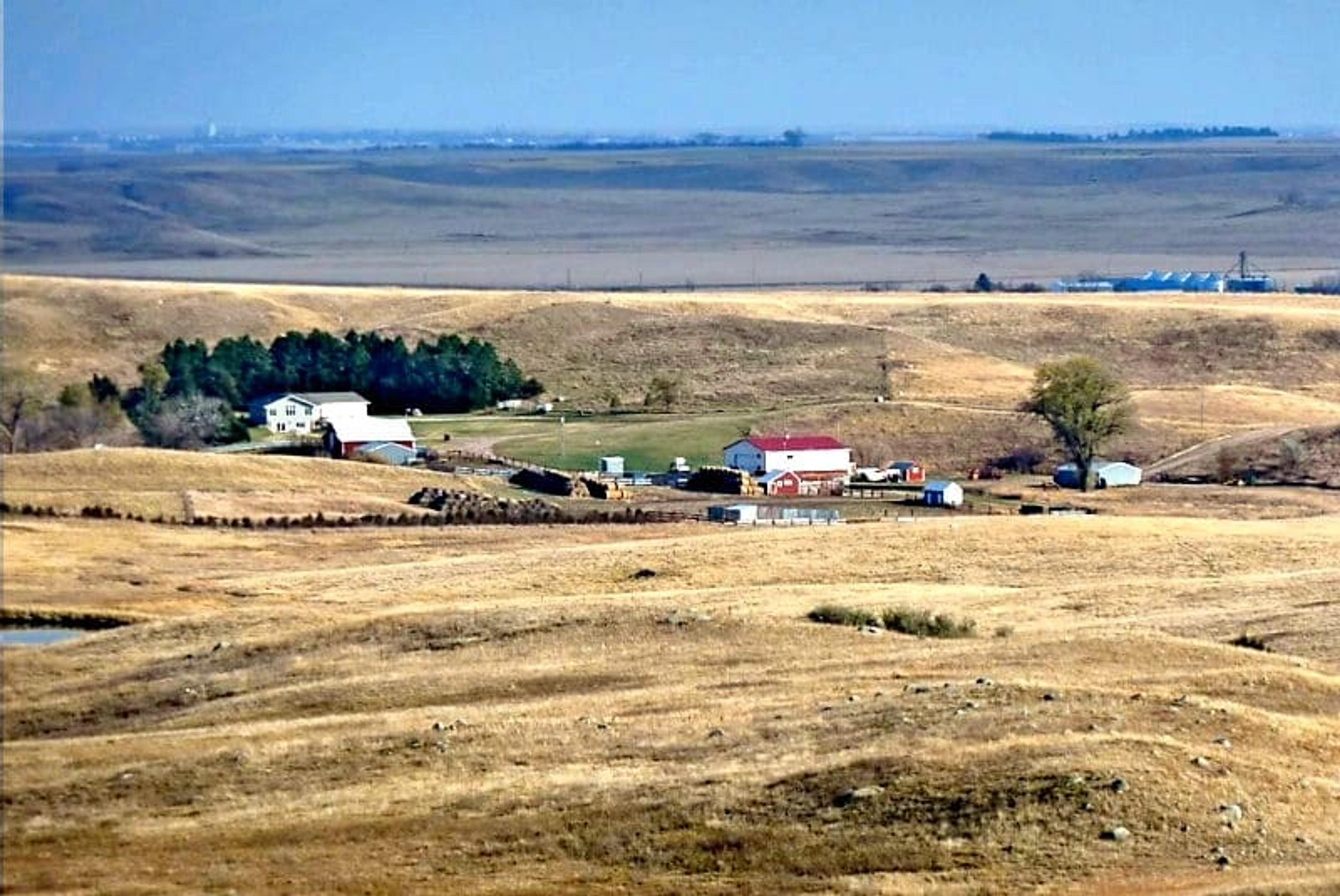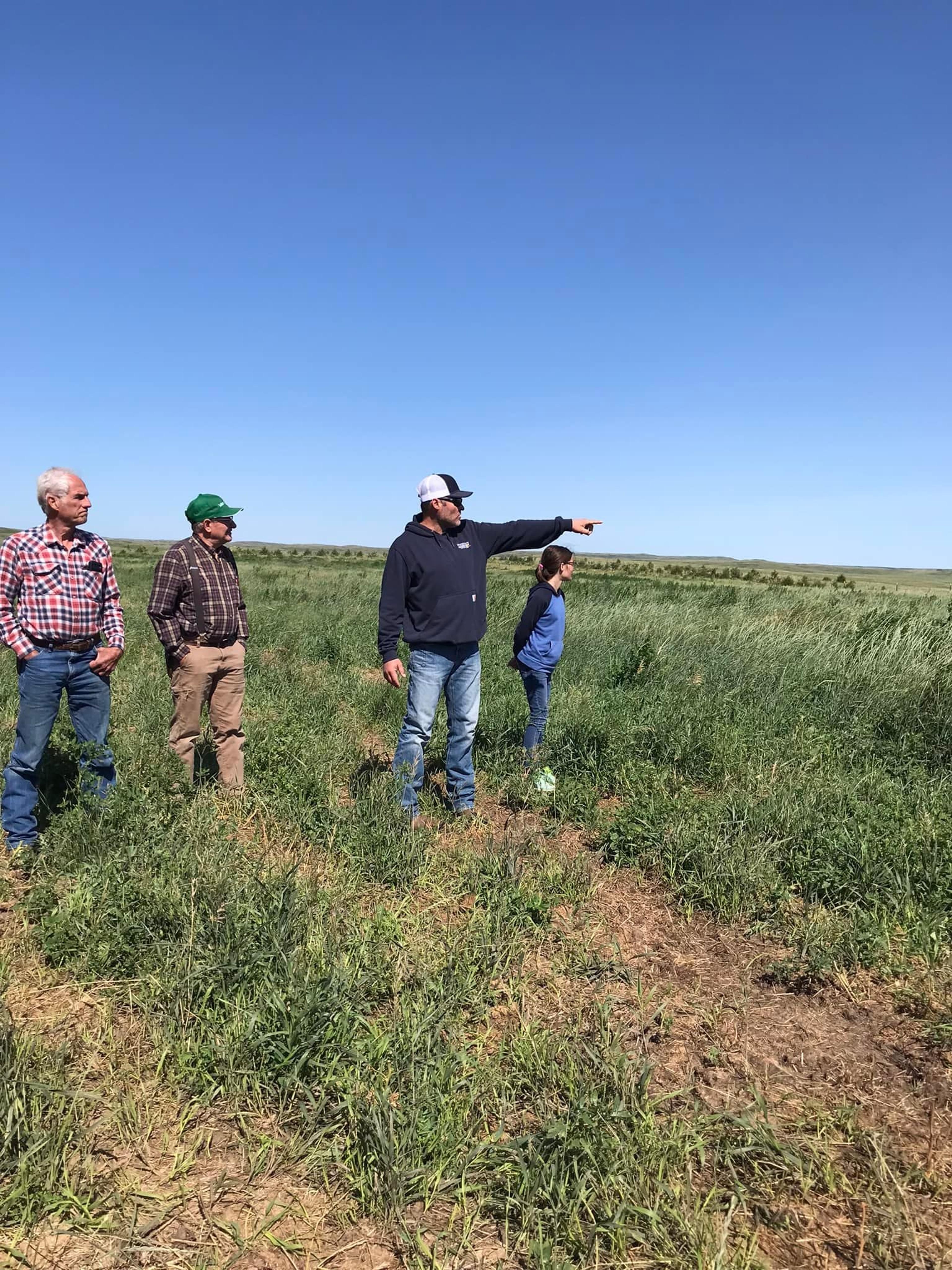Luke Perman's connection to South Dakota ranching runs five generations deep. "My family's been in the area involved in production agriculture since about 1900," he shares. His great-great-grandfather homesteaded in the region, and his parents started their own operation in 1976, weathering the tough agricultural climate of the 80’s.
After serving in the South Dakota National Guard in Iraq, Luke returned to the ranch ready to build on his family's legacy. "By me coming back, it opened up more opportunities to do the things that my dad probably dreamed of for quite a while," he explains.

The Challenge
As Luke stepped back into ranch life, opportunities for expansion quickly presented themselves. He began managing herds for neighboring ranchers while growing his own operation. This created a complex web of ownership. "There's five different owners on the cows, there's eleven on the yearlings. I mean, it's a mess," he explains. "I truly am the only person that has a firm grasp of how it's all going."
While Luke managed to keep track of these arrangements mentally, his financial tools failed to represent the details correctly on paper. He’d tested every platform over the years—Quicken, QuickBooks, Dext—but each option only complicated his already challenging situation. "I've tried a bunch of different platforms… I just couldn't find one that really made sense to me and just worked for me."
Not finding a fit led to a multi-step process involving different platforms and people, wasting resources and time: "I would put the stuff into Dext... Then my assistant would tag it... Then the bookkeeper would take it from Dext and put it over to QuickBooks. And I was just like, this is way, way too complicated."
Even with a team handling the books, Luke couldn't get the clarity he needed. "I look at QuickBooks and I have no idea what's in there," he says. "Everything seems so disconnected and nothing was real time... I never had any confidence." Ironically, delegating created more problems: "I don't think I was saving myself any time by having everybody else dealing with my stuff—because it is complicated."
The Solution
Luke decided to take control of his financial management and switched to Ambrook, immediately feeling the difference. "It's just simpler to navigate," he says.
Rather than relying on others to interpret and enter financial data, Luke began managing his books himself with Ambrook. "I put it in there like myself – it takes two minutes and it's done." For him, that self-sufficiency made a huge difference. "It's forcing me to look at all these transactions every month and say, ‘kay, yep, that's right, that's right, that's right.’"
Instead of falling behind or waiting on reports from others, Luke now has a rhythm and real-time insight into the business.

The Results
Luke transformed his relationship with financial management by taking ownership of the process. He now spends slightly more time than he did with QuickBooks, but he has a much stronger pulse on where he stands financially. He regularly opens his accounts payable with full confidence that everything is accurate and nothing is missing.
By directly engaging with his books, Luke eliminated the uncertainty that used to plague his decision making. He no longer second-guesses what might have slipped through the cracks. With the right tools supporting his hands-on approach, he can confidently manage his complex operation without sacrificing clarity.
Looking Forward
With reliable financial data as his foundation, Luke is strategically positioning his ranch for what's next. As a forward-thinking operator, he sees how emerging technology will give him an advantage. "I'm hoping, with AI and everything, I could just open Ambrook up and say, hey, how much did I spend on X last year? Or what was the change over the last couple of years in this category?" he explains. "Just being able to ask a question and have the program give me the answer rather than, ‘let's see, I’ve got to figure out how to make this report.’"
This instinct to stay ahead runs in the family—his grandfather was the first rancher in the area to own a round baler. "He was always interested in what's new, how he can be more productive and that sort of thing."
Luke is already planning several steps ahead, creating a resilient operation that could support the next generation. "It's not too early to start thinking about how to create opportunities for [my kids] if they would want to join the operation. I'm trying to stay nimble in case one or multiple of them want to come back."
Be self-sufficient in the books